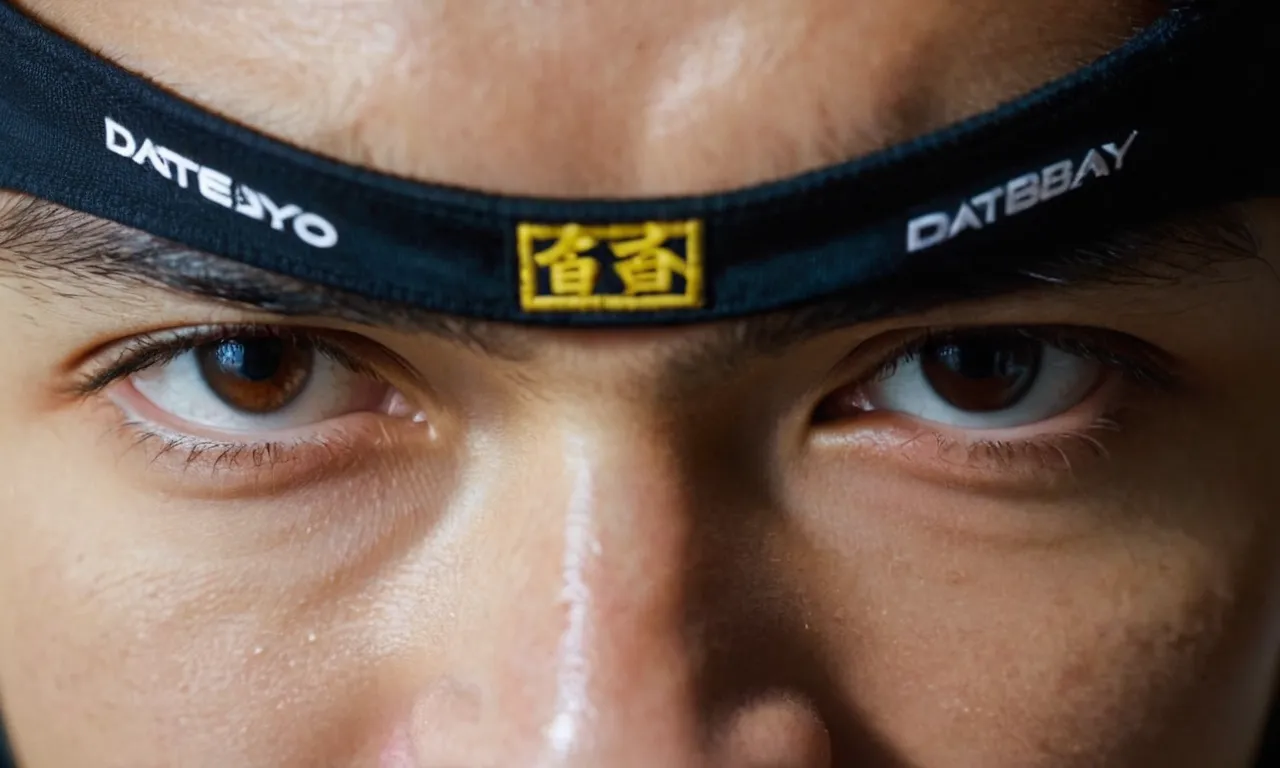Dattebayo Meaning - Unpacking A Familiar Phrase
When you hear "dattebayo," it probably brings to mind a certain energetic, spiky-haired young person from a very popular story. This simple collection of sounds, you know, has a way of sticking with you, almost like a signature. For many who enjoy animated stories from Japan, it's a sound that signals a particular character's arrival or a burst of his unique spirit. This phrase, like so many others, carries a sense that can be felt, rather than just heard, and it’s a sense that has grown over time, really, to become a part of the character himself.
Yet, the idea of "dattebayo" isn't just tied to one character; it also connects to a group of people who help share these stories with a wider world. This group, you see, took on the name "Dattebayo" for their efforts, making it a kind of badge for their work in bringing Japanese animated shows to English-speaking audiences. It's interesting, isn't it, how a single phrase can have these different lives, each with its own story and its own purpose? So, in some respects, this phrase holds a few different layers of sense, depending on how you come across it.
We're going to take a closer look at what "dattebayo" signifies, both as a memorable part of a character's speech and as the chosen name for a group that shares stories. We'll also consider, in a way, how words get their sense generally, and why that sense might shift or change depending on the setting or the people using them. This exploration will, perhaps, give you a fuller sense of this rather unique and, apparently, quite important phrase.
Table of Contents
- What's the Story Behind Naruto's Catchphrase?
- How Did "Dattebayo" Come to Be Naruto's Signature Saying?
- Is "Dattebayo" Just a Random Sound?
- The "Dattebayo" Fansub Group - Another Side to the Name
- What Does "Dattebayo" Mean in the World of Fan Translations?
- Understanding How Words Get Their Sense
- How Can the Sense of a Word Change?
- What is the "Vocabulary" of a Word?
What's the Story Behind Naruto's Catchphrase?
Many people who watch Japanese animation might recognize "dattebayo" as a phrase often spoken by a main character named Naruto. It’s almost like his verbal signature, a sound that, you know, just belongs to him. The person who created Naruto, Masashi Kishimoto, apparently wanted to give this character a way of speaking that felt, well, like a young person's special saying. He had this idea that a phrase like "dattebayo" would fit the character's spirit, making him seem a bit more, say, youthful and perhaps a little bit unrefined, which actually, you know, suited the character very well. It's a way of speaking that gives a person a kind of verbal quirk, making them more memorable to those who follow their story.
The creator had a strong belief that this particular phrase, "dattebayo," really helped shape Naruto's overall personality. It wasn't just a random collection of sounds; it was, in a way, a tool to build out who Naruto was. This phrase, you see, served as a kind of verbal stamp, something that made him stand out. It gave him a unique way of expressing himself, a sort of verbal tic that, as a matter of fact, became a part of his charm. It's interesting how a simple phrase can hold so much weight in showing who a character is, isn't it? It really helps to show the character's inner workings without having to say a lot of other things.
How Did "Dattebayo" Come to Be Naruto's Signature Saying?
The story goes that Naruto picked up this particular way of speaking from his mother, a detail that, you know, adds a bit of family history to his verbal habits. So, when people ask why Naruto uses "dattebayo," or why in the English versions it often becomes "believe it," the answer connects back to his family background. It's a bit like inheriting a special family trait, but instead of, say, hair color, it's a way of talking. This inheritance gives his speech a deeper sense, linking him to his past and, perhaps, showing a part of his character that runs in the family. It's a subtle touch that, frankly, adds a lot to the character's story.
In earlier parts of Naruto's story, there are moments where other characters, like Sakura, might think about this phrase or, you know, react to it. This shows that "dattebayo" wasn't just something Naruto said; it was something that others around him noticed and, perhaps, even had thoughts about. It suggests that this phrase had a real impact on the way people saw Naruto and how they interacted with him. It's not just a filler word for him; it's a part of his presence, a sound that, apparently, carries weight in the story. So, it's not just about what he says, but how others hear it and what they make of it.
Is "Dattebayo" Just a Random Sound?
While "dattebayo" might sound like a simple exclamation, its sense is more complex than just a random sound. It's a phrase that, in a way, gives a sense of emphasis or determination to whatever Naruto is saying. Think of it as a verbal flourish, something that adds a bit of extra punch to his words. It's not, you know, a word that has a single, easy translation into English, which is why translators often choose something that carries a similar spirit, like "believe it." This choice aims to give English speakers the same feeling of conviction or insistence that the original Japanese phrase provides. It's a good example of how sometimes, the sense of a word is less about a direct equivalent and more about the feeling it creates.
The exact sense of a phrase like "dattebayo" can, in fact, depend a lot on where you're from, or rather, the cultural background you bring to it. What sounds like a simple, childlike saying in one place might be heard quite differently in another. This is, you know, a pretty common thing with words and phrases that don't have a direct, one-to-one match across different languages. The way we understand sounds and words is shaped by our own experiences and the way language is used around us. So, while it's a specific phrase from a specific story, its sense can, arguably, be felt in slightly different ways by people from different parts of the world, or with different experiences.
The "Dattebayo" Fansub Group - Another Side to the Name
Beyond its connection to a famous character, "Dattebayo" also serves as the name for a group of people who, essentially, work to bring Japanese animated stories to a wider audience. This group is known for translating shows like Naruto and Bleach from their original Japanese into English. They then, you know, put out these translated versions on the internet for anyone to watch without having to pay. It’s a way of sharing stories and making them accessible to people who might not otherwise be able to enjoy them due to language differences. This shows how a phrase can be adopted and given a completely different, yet related, sense in a new setting.
The choice of "Dattebayo" as a group name is, perhaps, a nod to the very content they work with. It's a way of saying, "Hey, we're about these stories," without having to spell it out. This sort of naming convention is actually pretty common in fan communities, where a recognizable phrase from a show or movie becomes a kind of identifier for a group that loves that content. It’s a subtle way of communicating their purpose and their passion to others who are, you know, in the know. So, the phrase itself takes on a new layer of sense, becoming a symbol for a collective effort rather than just a character's verbal habit.
What Does "Dattebayo" Mean in the World of Fan Translations?
In the context of fan translations, "Dattebayo" doesn't carry the same personal sense as it does when Naruto says it. Here, it signifies a group's dedication to making Japanese stories available to English speakers. It's a name that, you know, represents their work in bridging language gaps and sharing cultural creations. Their efforts allow people who don't speak Japanese to follow along with the stories, understand the conversations, and, in a way, feel closer to the characters and their adventures. This particular group, by using this name, essentially tells you a bit about what they do and the kinds of stories they care about, which is, you know, pretty clear.
The act of translating, as this group does, is a bit like interpreting. It's not just about swapping words; it's about conveying the sense, the feelings, and the spirit of the original. So, the "Dattebayo" group, in their work, is essentially trying to capture the essence of shows like Naruto and Bleach and present it in a way that makes sense to a new audience. Their name, then, becomes a symbol of this bridge-building effort. It's a testament to how language can connect people across different parts of the world, making stories, which are, you know, pretty important, accessible to everyone, more or less.
Understanding How Words Get Their Sense
When we talk about the "meaning" of words, it's, you know, a bit more involved than just looking them up in a book. The sense a word carries can depend a lot on, as a matter of fact, where you are from. A word or phrase that holds a certain sense in one part of the world might have a slightly different feel or, perhaps, a completely different sense in another. This is because language is, in a way, shaped by the people who use it and the experiences they share. So, what "dattebayo" signifies can be felt differently by someone in Japan versus someone watching a translated version in, say, America, which is pretty interesting.
Consider the idea that "meaning" itself is, in a way, the sense of what you just said. It's about what a word or a phrase intends to get across. So, when we ask "what does this word mean?", we're really asking about the collection of ideas or feelings that word brings to mind. This is, you know, a fairly deep idea when you think about it. It's not just about a simple definition; it's about all the connections and thoughts that are tied to that particular sound or written mark. Words, essentially, gather their sense from how they are used and how people respond to them, which, you know, makes language a very lively thing.
How Can the Sense of a Word Change?
The sense of a word can shift, sometimes just a little, sometimes quite a lot, depending on its setting. For example, the sense of "dattebayo" as a character's special saying is different from its sense as a group's name. This shows how words are not fixed things; they are, in fact, quite fluid. They can pick up new senses, or their existing senses can change over time, perhaps even becoming more general or more specific. It's a bit like how a tool can be used for many different tasks, and each task gives the tool a slightly different feel. So, the environment in which a word is used plays a rather big part in shaping what it signifies.
Think about how a simple greeting phrase, like "nyanpasu" from a character named Renge Miyauchi, was created by a first-grade elementary school student. This shows that words and phrases can come from, you know, unexpected places and take on a life of their own. The sense of such a phrase might start very simply, but then, as more people use it or hear it, it can grow and gather new layers of understanding. This is, in some respects, how language evolves; new expressions come into being, and old ones take on new senses, which is, you know, pretty cool to see in action. It's a constantly moving thing, language is.
What is the "Vocabulary" of a Word?
The idea that "meaning," in other words, can be seen as the "vocabulary" of a word is a rather interesting way to look at it. This suggests that a single word doesn't just have one set sense; it has a whole collection of possible senses, like its own personal word list. So, when we talk about the "vocabulary" of a word, we're thinking about all the different ways that word can be understood or used. For "dattebayo," its "vocabulary" includes its sense as Naruto's verbal tic and its sense as the name of a translation group. This broader view helps us appreciate the richness and adaptability of language, you know, in a rather big way.
This concept helps us understand why words can be so powerful and why they can create so many different reactions. Because a word has a "vocabulary" of senses, it can be used in many different situations to convey slightly different things. This is why, you know, people can play with words, make jokes, or even create new expressions. It's the flexibility of a word's "vocabulary" that allows for such creativity. So, the next time you hear "dattebayo," remember it's not just a sound; it's a collection of senses, a small but, apparently, very active part of the bigger language picture.
This exploration has, basically, walked through the various senses of "dattebayo," from its origins as a character's special way of speaking to its role as a group's identifying mark. We’ve also touched on the broader idea of how words gather their sense, how that sense can shift based on where you are or who is using the word, and how the collection of possible senses for a word is like its own personal word list. It’s a look at how a simple phrase can, you know, hold a lot of different ideas.

Dattebayo Meaning: Exploring The Iconic Catchphrase From Naruto

When To Use Dattebayo And Its Meaning? - My Otaku World

Why Naruto Says 'Dattebayo': Meaning & Reason Explained - MangaShed